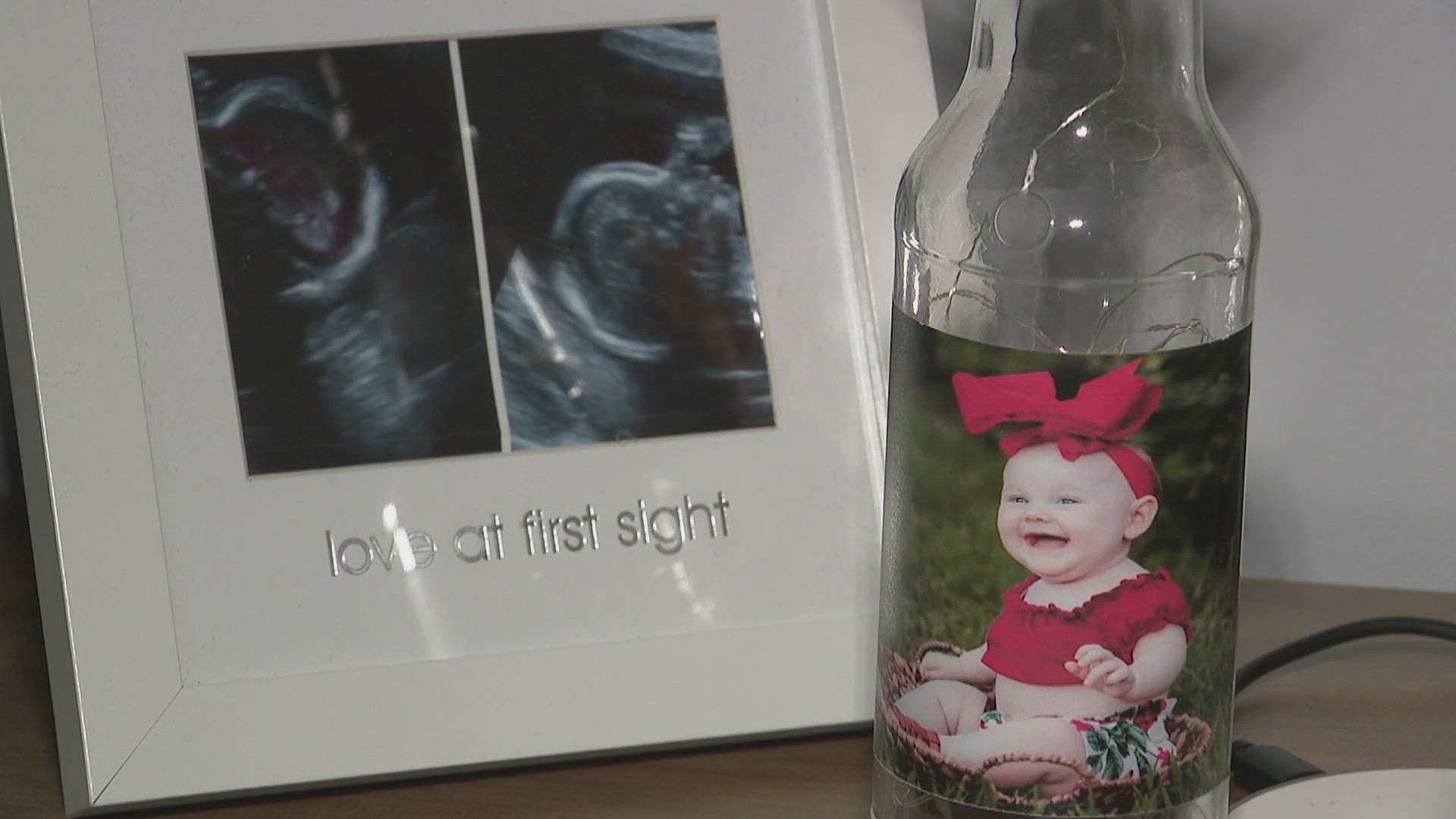ST. LOUIS — The Infertility Center of St. Louis, led by Dr. Sherman Silber, has long been a destination for hopeful couples. But an I-Team investigation has uncovered concerning practices that have left some former patients questioning everything.
“They won't give me an answer," said Mary Gorman, a former in vitro fertilization patient.
Our first report centered on Mary and Jimmy Gorman, who told us the fertility center lost their embryo.
“I don’t want this to ever happen to anybody again," she said.
Since the I-Team’s initial report aired about the Gormans, who said their embryo went missing at the center, the I-Team has heard from other former patients who said they experienced similar issues with lack of transparency and lack of proper protocols. Among them were Jamie Smiley-Watts, Maddie Bobbitt, and Shawn and Ashley Fritz.
“I was absolutely not surprised," said Jamie, a former IVF patient. “It hurts.”
Jamie and her husband are among those speaking out.
“I felt betrayed," said her husband, Justin Watts.
They now have two children, conceived through donated eggs at a different clinic after Jamie was unable to use her own. Their grueling journey began at the Infertility Center of St. Louis, hoping for IVF success.
“There was a lot of things that went wrong," said Jamie.
For more than a month, the fertility center has not responded to our questions.
Jamie said she’s still waiting for all her medical records. Her complaints are numerous. Jamie said they were initially told only two eggs had been retrieved. She said a second opinion later revealed more eggs had actually been collected.
“He never disclosed that with us," she said.
She also said her embryos were not viable partly because of problems with the oil they were stored in—something another former patient also alleges.
Jamie, fellow former patient Ashley Fritz, and Fritz's husband Shawn all say their embryos were not viable because they were stored in an oil that had quality issues that destroyed the embryos.
Jamie said she underwent a painful and costly surgery called a tubal reversal, hoping it would help her conceive.
“Oh, that was terrible. It was like a C-section. My guts felt like they were falling out as soon as I stood up," she said.
She said another fertility clinic later revealed that not only was the procedure unnecessary, but it had no chance of success.
“It was a huge emotional roller coaster," she said.
These issues highlight the risks inherent in the multi-billion dollar fertility industry, where success is never guaranteed even when everything is done correctly.
For many couples, IVF is their only hope for a child. Yet, only certain states require insurance to cover some form of fertility treatment. Illinois is one of them. Missouri is not, according to RESOLVE: The National Infertility Association.
Families face staggering financial burdens, with only a fraction of employers covering IVF. Jamie and her husband paid for IVF out of pocket. Their health insurance under their employers did not cover IVF.
“This was money that we saved up for. This is not money that we just had lying around the house," she said.
Jamie and her husband said they spent $50,000 at the Infertility Center of St. Louis and another $25,000 at a different clinic to start their family.
“These guys are our whole world," she said, looking at her children.
She said they're miracles born from a journey marked by pain and heartache.
The American Society for Reproductive Medicine sets guidelines to prevent medical errors at fertility clinics, mandating updated policies and immediate disclosure of errors. 5 On Your Side asked if Dr. Silber was a member, but did not receive a response from the Infertility Center of St. Louis by deadline.
"Our hearts go out to the patients in our city who have shared their struggles with fertility treatments,” said Danielle Faith, founder of St. Louis-based nonprofit Making a Miracle, an organization that caters to the mental health of those struggling with infertility. “While we believe in the dedication and expertise of our doctors, we also recognize that every patient’s experience is unique, and while mistakes can happen, we hope that when patients speak up about mistakes or concerns they are honest and are met with empathy and willingness to make things right.
"It’s essential that everyone receives the care they deserve, the highest chance of success in their journey, and we encourage anyone who feels their care is lacking to speak up, seek advice, and get the emotional support they need. We’re here to help and will continue working with healthcare providers to improve patient experiences in our community. You can find resources, support, and other information at www.makingamiracle.org."
If you want to get in touch with Paula, leave a voice message on 314-444-5231 or email her directly at paula@ksdk.com.

